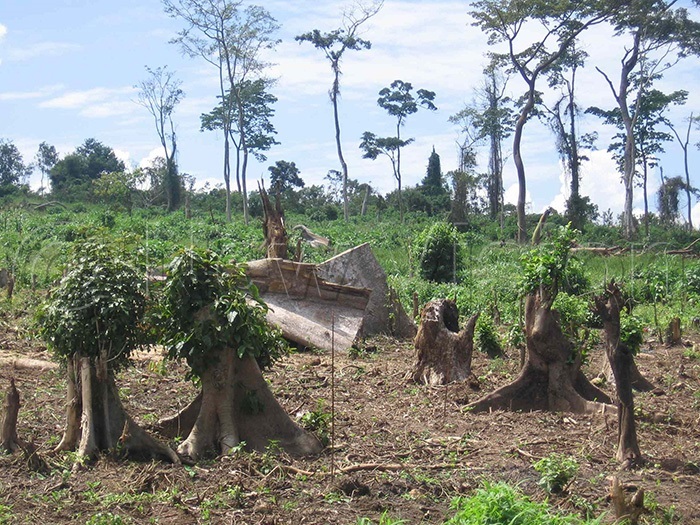Government roots for Biomass energy technologies
Dec 04, 2020
Biomass-based fuels are widely used for cooking in rural areas, most urban households, institutions, and commercial enterprises.

BIOMASS|ENERGY|GOVERNMENT
Biomass remains a predominant source of energy and the majority of Uganda's population relies on this source to meet their basic household and commercial energy needs.
Biomass-based fuels are widely used for cooking in rural areas, most urban households, institutions, and commercial enterprises. It is also the main source of energy for rural industries.
According to the Renewable Energy Policy for Uganda (2007), biomass will continue to play a crucial role in Uganda's economy and energy sector in the foreseeable future.
According to Stephen Ntegyereze, an expert on renewable energy and a lecturer at the College of Engineering, Design, Art, and Technology, the contribution of the biomass sub-sector to Uganda's GDP is estimated at US$ 1.7B per year. Biomass value chains also generate over 200, 000 jobs for Ugandans.
"The household sector continues to be the biggest consumer of energy accounting for 74% of delivered energy followed by 18% in the industrial sector, 3% in institutions, and 5% in the commercial sector," Ntegyereze notes.
Ntegyereze says, the ever rising demand for firewood and charcoal, alongside inefficient and traditional production and utilisation methods and practices, has unfortunately led to the rapid depletion of the country's biomass resources.
"The current rate of consumption of woody biomass is estimated to be about 28% above the sustainable yield. This undesirable situation is associated with a range of adverse ecological and environmental consequences especially in areas like the ‘'cattle corridor'' districts of Uganda where most of the biomass is harvested," says Ntegyereze.

Government's initiatives to address clean cooking
To address the deteriorating biomass energy situation in Uganda, the Ministry of Energy and Mineral Development has put in place appropriate policies, strategies and interventions that aim to support increased access to improved and modern biomass energy technologies in households, social institutions and Small and Medium Enterprises (SMEs) on a sustainable basis.
The Modern Biomass for Rural Development Program and the Promotion of Renewable Energy and Energy Efficiency Program (PREEEP) are some of the key interventions from the Energy Ministry in the biomass sub-sector.
The former aims to promote usage of biomass in modern ways and create awareness of and access to modern biomass technologies including energy saving cookstoves, briquettes, biogas digesters and bio fuels.
The latter's main objective is to improve access to renewable energy and associated services as well as efficient usage of energy in households, institutions, commerce and industry.
"We have also taken lead in developing the National Biomass Energy Strategy (NBEST) for Uganda. This strategy defines a comprehensive framework for sustainable management and utilization of biomass resources in meeting the country's energy needs," says Wafula Simon, the commissioner for Renewable Energy at the Ministry of Energy and Mineral Development.
The Ministry of Energy and Mineral Development has also collaborated with several partners in implementing a UNDP/GEF supported project titled, ‘Addressing Barriers to Adoption of Improved Charcoal Production Technologies and Sustainable Land Practices through an Integrated Approach'.
"The overall objective of the project is to secure multiple environmental benefits by addressing the twin challenges of unsustainable utilization of fuelwood (including charcoal) and poor land management practices common in Uganda's woodlands through technology transfer, enhancement of the national policy framework and promotion of Sustainable Land Management (SLM) and Sustainable Forest Management (SFM) practices. The 4-year project is being implemented in the ‘cattle corridor' districts of Mubende, Kiboga, Nakaseke and Kiryadongo," Wafula says.

Why modern biomass energy technologies
Wafula says there are Social and Environmental benefits that can be attained from using modern biomass energy technologies.
"These technologies produce little to no smoke, reducing cases of smoke related diseases and conditions like eye infections, cough, asthma and cancer, especially among women and children. They are also affordable and use less fuel, often requiring 50% of regular amounts of briquettes, firewood or charcoal to cook a meal faster," he says.
He adds that Biomass technologies not only contribute to better urban waste management on landfills and also improve agro-industries' waste management, but byproducts from biogas production can be applied to gardens as organic fertilizer to improve agricultural yield.
Biomass energy can also be applied in electric power generation, as well as in the manufacture of liquid and gaseous fuel hence improving the country's energy self-reliance and energy security.
"Biomass energies are also a key source of income, as biomass-based industries play a crucial role in income generation for many people. The sector employs over 200,000 people and supports over 1,000,000 dependents countrywide," Ntegyereze says.
